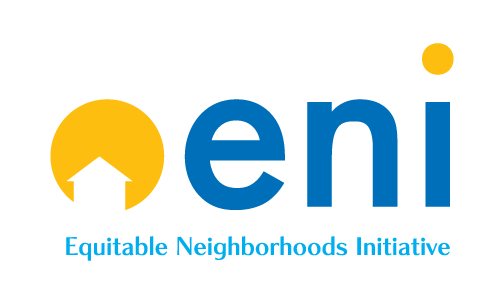September 29, 2023
– By Uyen Truong –
What is Faith?
Since the early days of human history, faith has been a compass, navigating individuals through life and shaping how they live. While “faith” often means a strong belief in God or religion, it can mean much more. To many, faith is the virtue that they uphold. It is the purpose that keeps them motivated every day. Faith can be the guiding light that leads them through uncertainty and hardship.
Because of the influence that faith has on people’s lives, faith can guide people’s behaviors and ethical standards. It can also guide their lifestyle, which can directly affect their wellbeing. A lot of research has studied faith beyond the religious perspectives and showed noticeable impacts of faith on people’s health—both physically and mentally.
Faith Practices & Positive Changes on Your Lifestyle
Every religion has its norms and rituals. Some of these practices can be good for health. For example, refraining from harmful behaviors, or abstinence, is a common practice in many religions. The specific behaviors that believers are expected to abstain from may vary. Yet, many of these practices have been scientifically proven to be beneficial to maintaining good health.
For instance, many religions discourage the use of addictive products. This often includes alcohol, tobacco, and drugs. These substances are believed to cloud intellect, dull consciousness, and interfere with self-control and decision-making. A prime example of this can be found in Islam, where alcohol and opiates are haram (forbidden) for their harmful effects on one’s moderation and self-awareness. Similarly, Christianity, Hinduism, and Buddhism also caution against substance misuse. Christians believe that everyone’s body is “a temple of the Spirit” given by God. Therefore, they must keep it pure and sober. Hindus and Buddhists also abstain from drugs and excessive alcohol use. They believe that intoxicants interfere with self-control, hindering their journey to achieve moksha – liberation from reincarnation. Faith-based addiction recovery is an encouraged practice. Spiritual treatments such as mindfulness therapy, meditation, yoga, Bible study, Torah study, group prayer, and worship services are usually integrated into medical rehabilitation programs to optimize the recovery process.
Abstinence also manifests in religion-based diets. It can benefit physical health in various ways. Different religions endorse different dietary rules, including vegetarianism in Buddhism and Hinduism, kosher in Judaism, or halal in Islam. While dietary restrictions may differ, these diets emphasize compassion in food choices. This indirectly promotes lower animal fat consumption and a greater intake of vegetables and fruits. Additionally, periodic fasting practices in religions such as Eastern Orthodox Christianity and Islam are associated with potential benefits in preventing cardiovascular diseases and increasing longevity.
Community of Faith is a Community of Support
Faith has many positive impacts on our lifestyle and physical health. There are also other unmeasurable impacts that faith can have on individuals and communities. We met with two of our ENI Community Liaisons, Tracy Burton from Goodwater, AL, and Keith Rhudy from Guin, AL. Tracy and Keith discussed their experiences with how faith-based support can support health awareness in the rural U.S. South.
Tracy and Keith have shown how following their faith has helped them gain trust and raise awareness of healthy lifestyles in their communities. As an ordained minister, Tracy shared that his position is a privilege that comes with great responsibility. It motivates him to deliver well-planned ENI programs and accurate health information to the community.
“You have to live the life first before people can believe in you. […] If you are a religious leader, it is very important that whatever you tell these people needs to come to pass, or they need to be able to trust that what you are saying is true,” said Tracy.
The thought stays true for Keith. He said, “Whether you are a pastor or whether you are in any other kind of service-related industry for a better world, the amount of time that you have been doing it, the experience that you have, also helps with the trust factor.”
As a pastor of 26 years, Keith shared that people in Guin already know what he does and what he stands for. This makes it easier for him to engage with the community members.
Tracy shared that his primary mission as an ENI Community Liaison is to raise awareness about self-esteem, healthy diets, and the risks of drug use in the community. He particularly focuses on working with the youth.
Tracy built a strong network to implement ENI programs by working with local churches and community members. As a part of the Goodwater Ministerial Alliance, he has partnered with pastors and volunteers to organize transportation for community members to visit doctors. They dedicate a lot of effort to engaging with children and local schools. Tracy and his team volunteer to walk the hallways, ensuring that their presence and support are known to the young people.
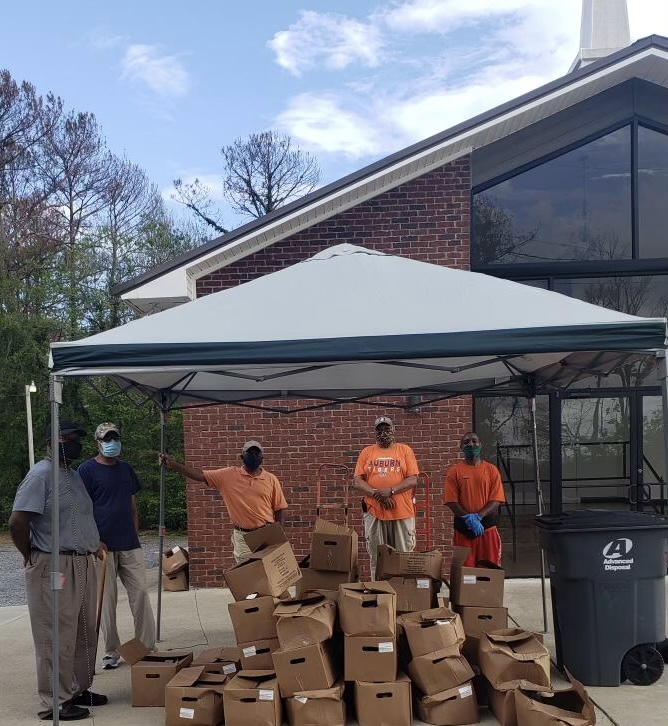

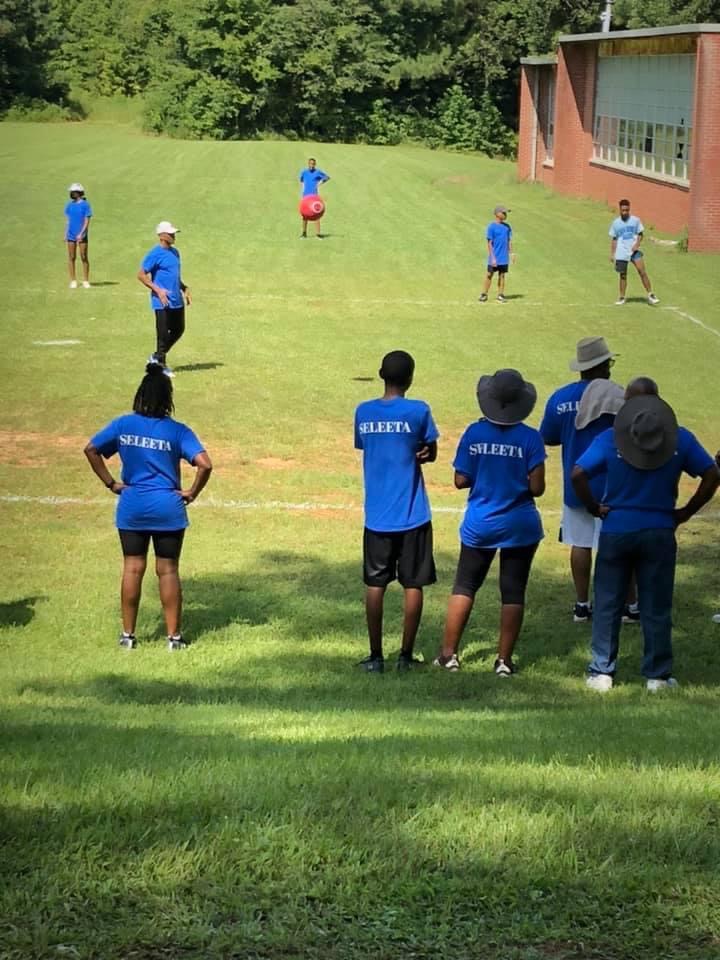
Tracy emphasized how important it is to take special care of the youth. As “a preacher and a teacher,” he expressed that issues like drug use among the youth might be rooted in deeper family traumas. He said it is important for adults like him to create a comfortable environment where children can openly seek help, rather than imposing expectations on them. This is where youth communities within the church come into play.
“I am trying to get the younger kids that are more involved in church and [growing up in a supportive household] to show [the less fortunate kids] the goodness that can still happen in their lives,” he said.
On a similar note, Keith uses his influence to guide Guin community members to a better lifestyle. Keith is a passionate advocate for exercise and preventive health care. He believes that simple practices such as going out for a run, working out, or guarding your sugar intake can mitigate some factors that cause diseases.
Keith shared that he cares about his community’s exercising and eating habits because he underwent major heart surgery in the past. Through ENI, he was able to meet and work with others who share the same belief as him – the belief in giving back to the community, driven by their own experiences. Keith expressed: “ENI helps connect the dots that might not have been connected otherwise.”
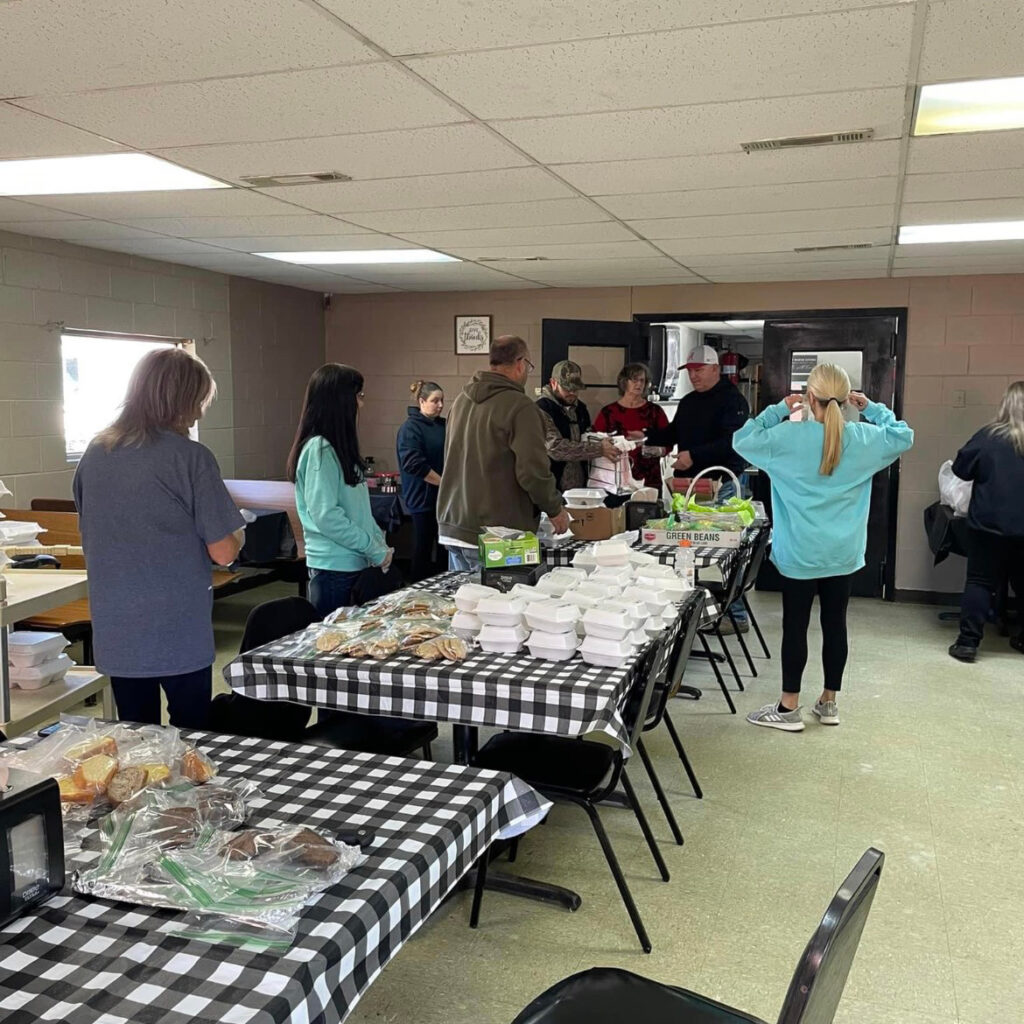
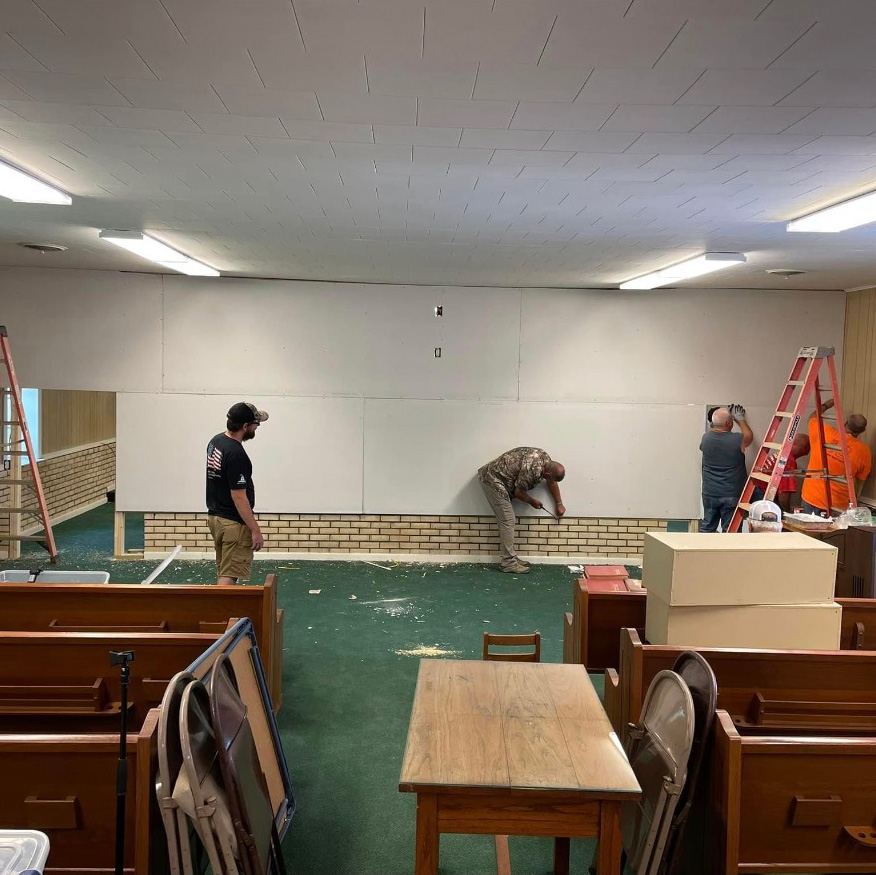
In one of his ENI programs, Keith partnered with a gym owner who promotes health to speak with the community about healthy living. Keith also teamed up with an ENI Advisory Group member who stood up after a miscarriage and wrote grants for pregnancy support programs in the community.
Keith appreciates ENI for its practical values. He shared, “Instead of saying, ‘Here’s what we think your community needs’, they [ENI] allow us to go into the community and ask our people, ‘What do you need? What’s your health concern?’” To Keith, the partners that he works with and the approaches that ENI takes have asserted the principles he stands for as a pastor, and now, as a Community Liaison.
Faith-Based Support Creating Lasting Impacts for ENI
The Equitable Neighborhoods Initiative recognizes that faith-based support can have a significant impact on community health. That’s why ENI is collaborating with the Greater Peace Community Development Corporation. GPCDC is a non-profit working to empower youth, communities, and families in Alabama. GPCDC will support ENI’s partner communities through workshops, resources and building effective partnerships with faith-based entities. GPCDC will be a crucial part of ensuring ENI’s long-term success in our partner communities.
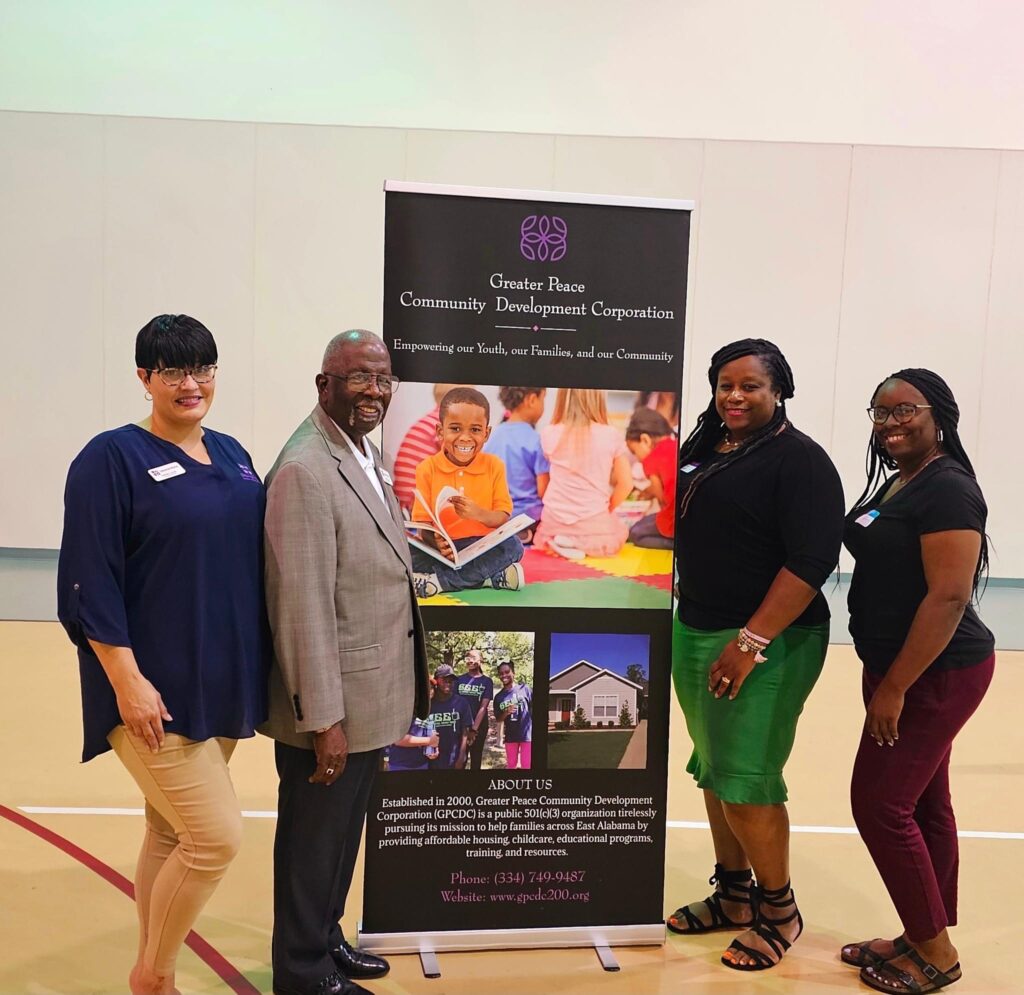
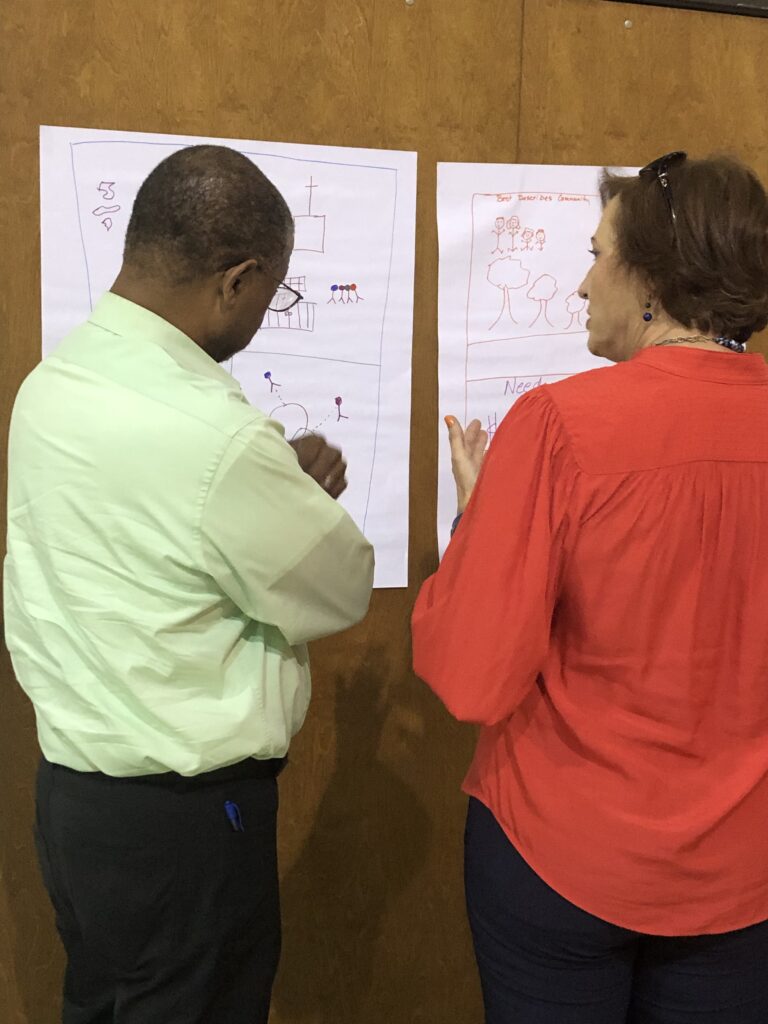
Faith communities play an important role in sharing correct health information with small rural communities in the Southern U.S. But this does not exclude people who are not part of these faiths from the healthcare programs. As Keith noted, what matters most is sharing common health concerns, not necessarily the same religious beliefs. Including health programs in a community of faith can still benefit everyone regardless of their religious beliefs.
